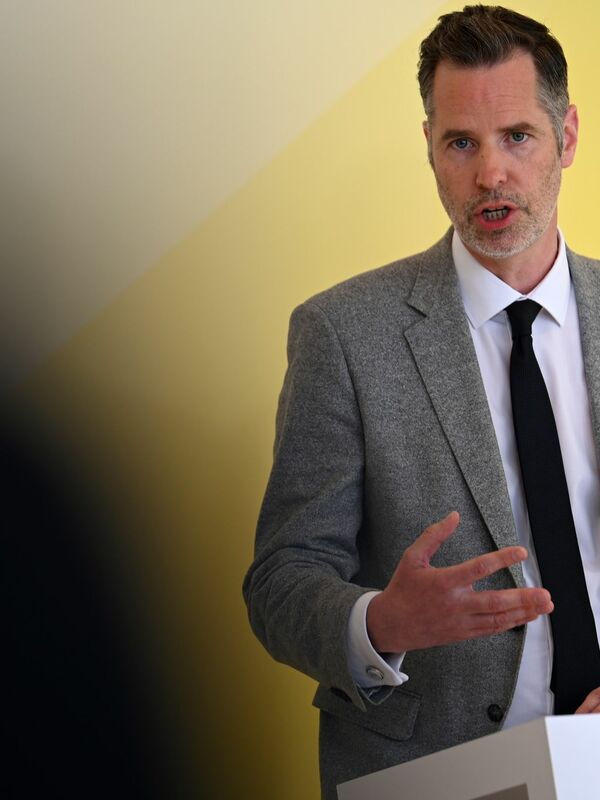Most climate researchers assume that there is an effect of anthropogenic carbon dioxide emissions to be relevant, yes: closely related to the development of the global mean temperature. In fact, there are so many climate researchers who have found that humans have such a large impact on the climate through CO2 emissions (that is, those they cause) that there is talk of a “consensus,” something widely accepted in science that rarely happens. . Almost everyone who deals with the subject sees it this way. There is no longer a debate in climatology about whether or not humans influence the climate.
There, the theory of anthropogenic climate change, like the theory of gravity, is treated as very, very well proven. Of course, there is still a theory that does not become true even after dozens of confirmations. This is also obvious from a scientific point of view, but it is still a theory that has no equal in academic practice. Therefore, there is no longer a causal discussion in the scientific community, just as there is no longer a discussion about the validity of the theory of gravity.
Those scientists who question human influence on climate change
Only about half the number of publications on average
Like scholars who support consensus.”
The consensus is based on the reports of the Intergovernmental Panel on Climate Change (IPCC). They represent the main lines of the current state of research. IPCC is recognized by scientific academies around the world. Consensus developed in the IPCC and its methodology It is explicitly supported by at least thirty scientific societies and the most important national academies of sciences, including all G8 countries.
In addition, (meta) studies of very different designs outside of the IPCC and the scientific institutions that support the IPCC show the climate research consensus more clearly. There are many studies on this topic. On the other hand, there are researchers who approach climate researchers directly for their work and interview them, often with the help of comparison groups. On the other hand, studies are being made on the contributions of climate research, with the question of whether anthropogenic climate change is postulated. Studies on scholarly studies (meta-studies) are considered the gold standard for sociology of science, because the evaluation of a large number of publications on a given topic can depict majorities, trends, and differences in the research community.
There is no argument about global warming
In a 2009 survey of climate scientists who also publish actively in their field, 97.4 percent agreed that “human activity is a significant contributor to change in the global average temperature.” The study concluded: “Among those who understand the nuances and scientific basis of long-term climate processes, there appear to be approximately There is no argument about the reality of global warming and the role of human activity in it. Instead, the challenge appears to be how to communicate this fact effectively to politicians and the general public, who mistakenly believe that there is debate among scholars.”
A 2010 study published in the Proceedings of the National Academy of Sciences of the United States of America evaluated scientific publications by 1,372 climate scientists and also found that approximately 97 to 98 percent of climate scientists are convinced of the thesis that humans influence on the climate. . The results also indicated that the two to three percent of climate researchers who were not convinced had significantly less experience in the field than researchers who were convinced of human-induced climate change, as measured by the number of their scientific publications on the topic: These scientists , who question human impact on climate change have, on average, about half as many publications as scientists who support the consensus.
Anyone who acknowledges man-made climate change will be posting more often
A 2013 study by climate communications researcher John Cook of the University of Queensland (Brisbane) found that 97 percent of scientific studies written by climate scientists agree that global warming is primarily human-caused. After an (unwarranted) critique of his work’s methodology, Cook and other authors followed up three years later and found that A large majority of “90 to 100 percent” of climate experts share the consensusHumans are the primary responsible for the current climate change.
This meta-analysis also revealed again that the degree of consensus found in studies depends largely on how competent the respondents are: among climate researchers already active in the field (i.e. many peer-reviewed publications in professional journals can be consulted), agreement is close to 100 percent. On the other hand, there is much less agreement about the causes of current climate change when you ask scientists who work in other areas of research or ordinary people who are not very active scientifically at all. Stefan Lewandowski, a professor at the University of Bristol and one of the study’s authors, summed up the finding succinctly: “It’s clear that when experience increases, so does consensus.”
The more public money flows, the more mainstream approval
This ties in with the finding of a 2009 study that asked 3,146 geoscientists if they believed that “human activity has a critical influence on changes in global average temperatures.” Among geoscientists who worked in the private sector, 47 percent answered in the affirmative. Among academic geologists who were neither climatologists nor published relevant papers, 77 percent answered yes. More than 97 percent of proven climatologists who have recently published research findings on global warming agree with this thesis.
Of particular interest are the three meta-studies conducted under the direction of James Lawrence Powell. In these, the researchers evaluated tens of thousands of scientific articles on climate change. In the first meta-study (2012), Powell came to the conclusion that only 24 of the 13,950 articles evaluated exclude human causation for currently observed climate change. Mean: 99.83% agree with impact thesis. In a meta-study published in 2016, he and his team found through continuous evaluation that only 4 out of 69,406 authors of peer-reviewed articles on climate change that were found to be scientifically valid and meaningful rejected the man-made climate thesis. changes.
studies with 99.99 percent agreement with the thesis
This makes 99.99 percent agree with the impact thesis. In his most recent work of 2017, Powell concludes, based on more than 54,000 articles, that there is a 99.94 percent consensus in the scientific community that humans are primarily responsible for global warming. On the results of studies conducted by James Lawrence Bowles As referred by the federal government in August 2019 In answer to a parliamentary question.
But what about the few who deviate from the consensus? Rasmus E Benestad et al. I dealt with “deviants” in a study from 2016. First, they found, unsurprisingly, that 97 percent of the papers they examined took the position on anthropogenic climate change. However, they also wanted to know what was going on with the missing three percent. So they checked these works very carefully. This “counter-test” also fits with the finding that increased expertise and seriousness of scientific work are compatible with acceptance of anthropogenic climate change.
Contrasting investigations have been examined particularly intensively
Examination of publications with dissenting opinions revealed that most of them had systematic errors. These papers often lack context or omit information that does not fit the conclusions. In addition, faulty models were often used, wrong binaries were cited, inappropriate statistical methods were used, or conclusions were drawn from wrong or incomplete physical assumptions.
Let’s be clear: A wide majority in climatology assumes that anthropogenic emissions of carbon dioxide have a significant impact on the evolution of the global mean temperature. You can’t get past that. Why some people still think they can do just that, and how they do it, is analyzed quite clearly in the “Climate Compatibility Handbook” published by John Cook, Sander van der Linden, Edward Maybach, and Stefan Lewandowski (along with 28 other pages of the handbook). It was published three years ago in German translation and can be found online (skepticalscience.com/docs/Consensus Handbook German A4.pdf).
The Tagespost print edition complements current news on die-tagespost.de with background information and analysis.

“Alcohol buff. Troublemaker. Introvert. Student. Social media lover. Web ninja. Bacon fan. Reader.”





More Stories
Up to 100 pilot whales stranded in Western Australia – Science
Huge radiation explosion from a magnetar – forschung.de
Principles and features of the folk nutritional principle